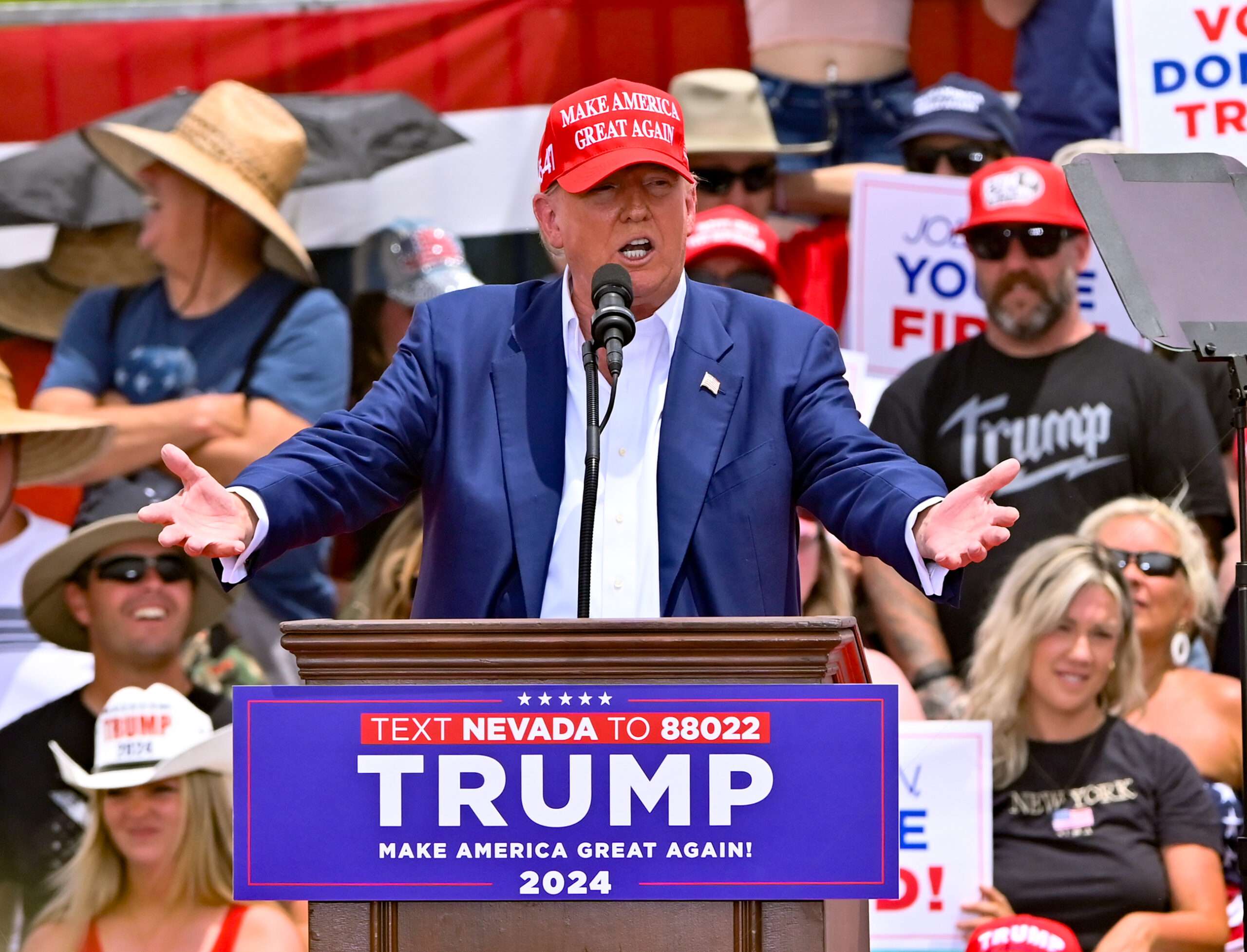This Election is Marked by Presidential Policy Appeal
In June, former President Donald Trump made headlines during a rally in Las Vegas when he proposed a surprising new tax initiative that would eliminate taxes on tips, a move aimed at securing the vote of Nevada’s substantial service worker community. Las Vegas, a city characterized by its hospitality sector, relies heavily on tipped income, making Trump’s proposal particularly relevant and appealing to local workers. His statement during the rally emphasized his intention to support those earning tips: “for those hotel workers and people that get tips you’re going to be very happy.” This proposal was not embedded in a larger tax reform vision but was a calculated electoral strategy to gain traction in a state pivotal for his campaign.
The phenomenon of “pandering,” characterized by politicians tailoring policies to specific voter groups, has become increasingly common in recent political campaigns, exemplified by both Trump and Kamala Harris. For instance, amid anxiety over disconnection from male voters, particularly Black men, Harris introduced an “Opportunity Agenda for Black Men,” which included substantial, forgivable loans for Black entrepreneurs. This initiative was marketed to appeal to a specific demographic in a similar fashion to Trump’s no-tax proposal, with both campaigns strategically targeting their messages towards particular voter segments in hopes of securing electoral favors.
Throughout his campaign, Trump has consistently engaged in tax-related pandering, linking popular tax breaks to demographic groups. Beyond tax exemption for tips, he has made additional proposals, such as eliminating taxes on Social Security to attract older voters and suggesting retroactive deductibility for generator purchases in response to hurricane disasters. At a recent rally, he announced a new tax credit for family caregivers, likely designed to counteract Harris’s less fleshed-out proposal for Medicare coverage of long-term care. This ongoing competition of policy offerings reflects a trend where each candidate seeks to outdo the other in appealing to voters through simplistic but emotionally resonant initiatives.
The recent political landscape suggests a diminishing focus on robust policy development, with candidates resorting to superficial proposals that are more about courting votes than presenting actionable, effective governance strategies. Vague measures—like address inflation with a price gouging proposal or alleviating financial burdens through targeted tax incentives—have come to dominate campaign platforms. These measures often lack the depth and comprehensive examination necessary to be a true reflection of governance, seeking instead to address immediate voter concerns with quick promises.
Politicians have historically engaged in some form of pandering to build support, but the current campaigns accentuate a shift towards treating policy proposals merely as tools for electoral gain rather than as components of a broader vision for governance. The result is a political dialogue that often prioritizes the marketing of ideas over substantive discussions. Campaigns are increasingly structured like promotional strategies, presenting simplistic and often vague remedies to complex issues as a means to woo specific voter groups without a clear intention or plan for execution.
As the 2024 presidential campaign unfolds, it becomes evident that much of the discourse revolves around pandering, with campaign agendas reduced to mere marketing schemes. This reliance on oversimplified promises focused on specific constituencies comes at the expense of meaningful policy discussions, leaving voters with a variety of half-developed proposals that serve primarily to win votes, rather than promoting a clear, ambitious vision for the future of governance in the United States. In this climate, it appears that the art of policymaking has largely succumbed to the template of electoral marketing, with politicians engaging in a competitive race to see who can best catch the attention of targeted voter segments through fleeting yet enticing promises.
Share this content:












Post Comment